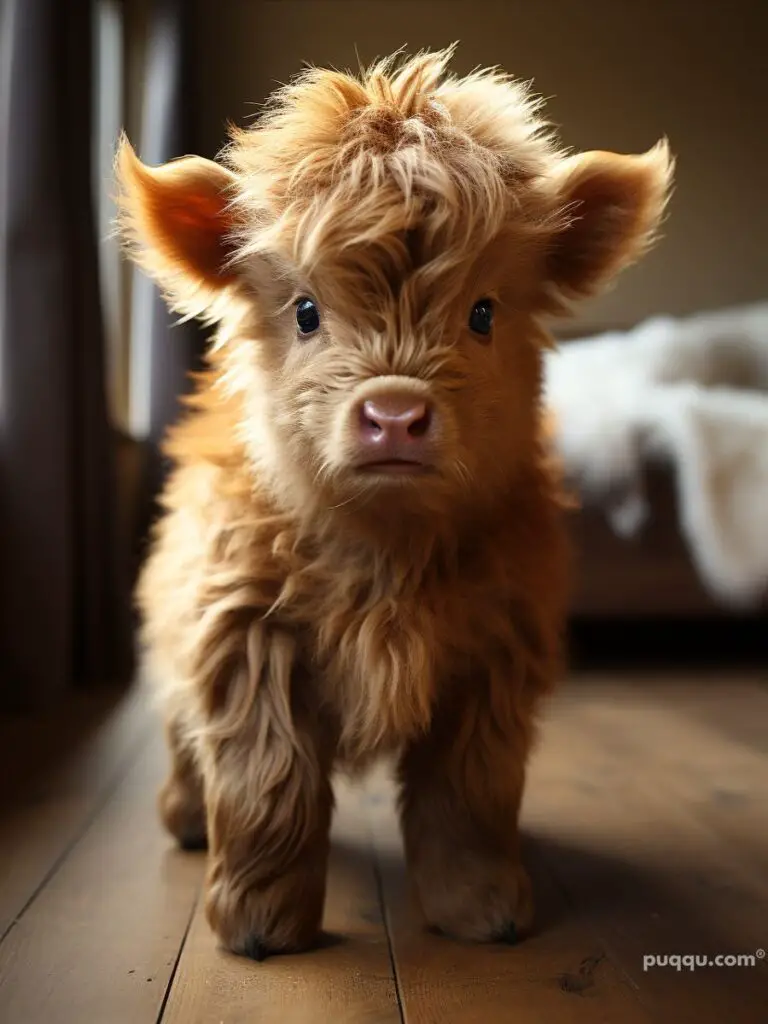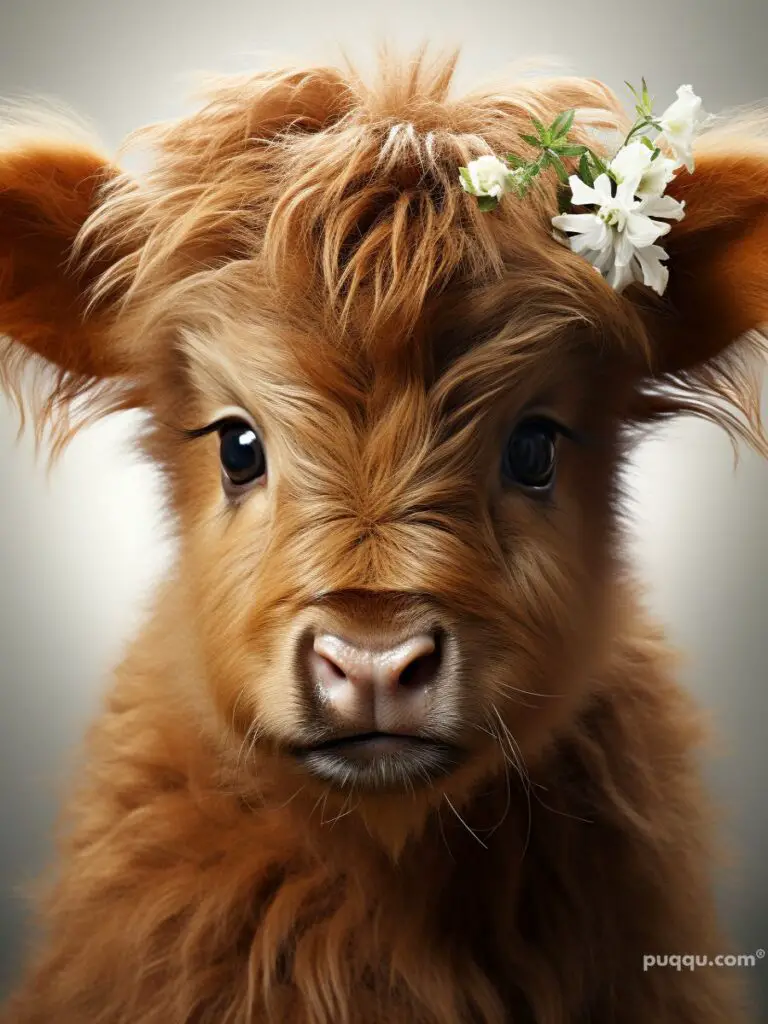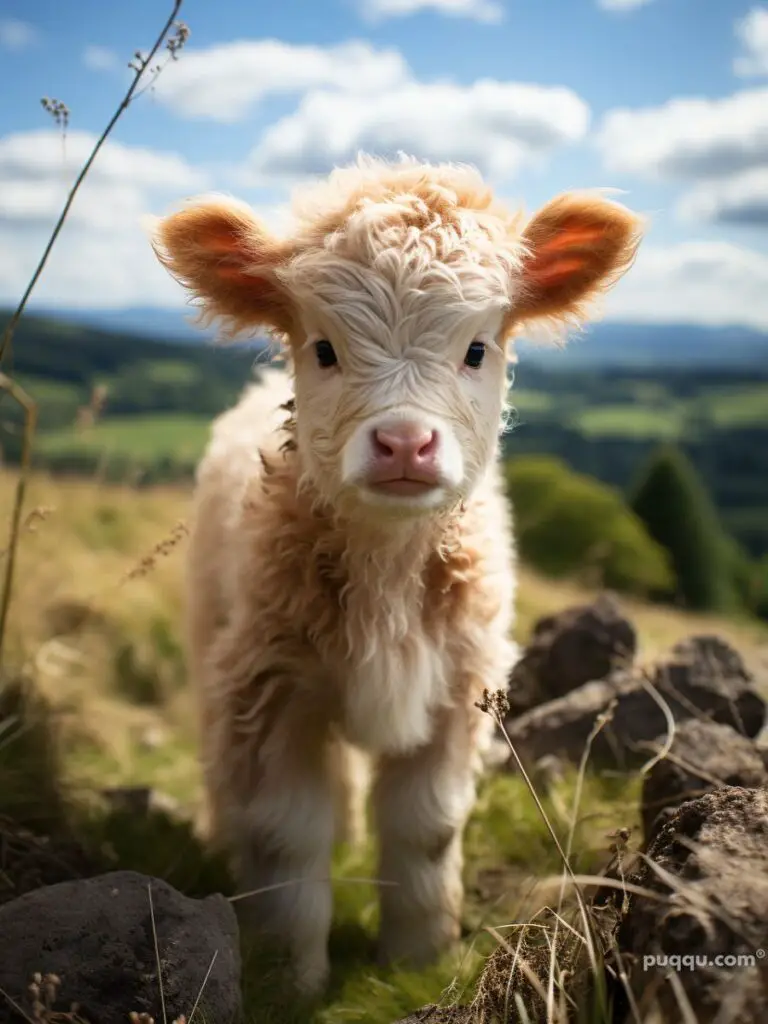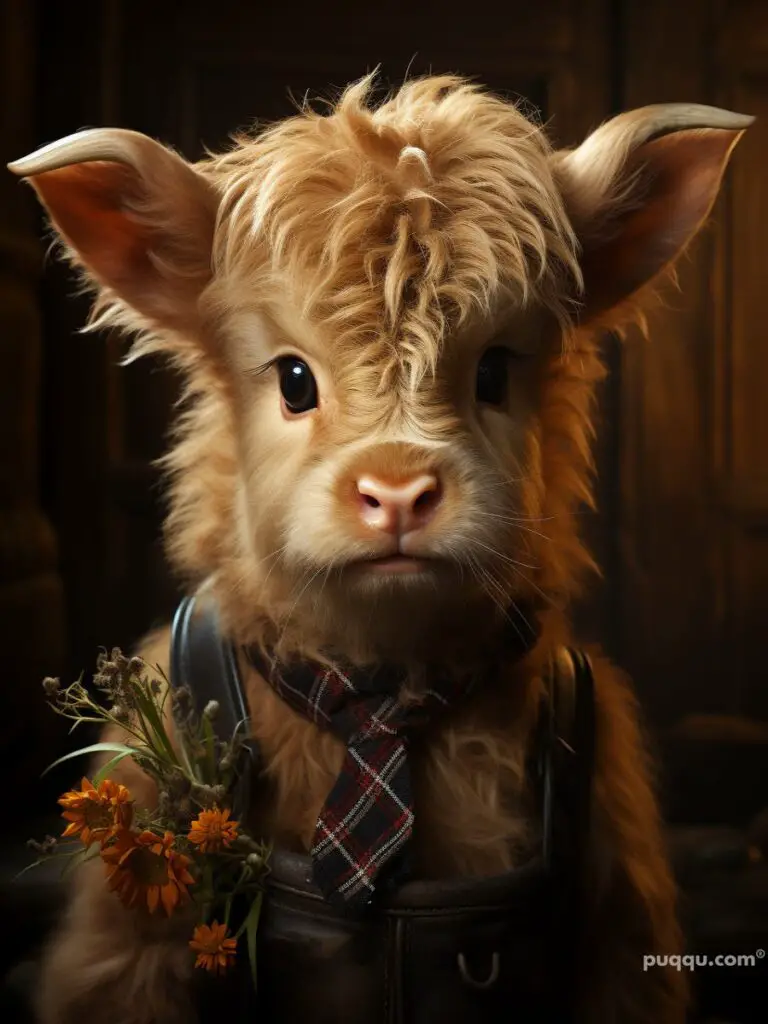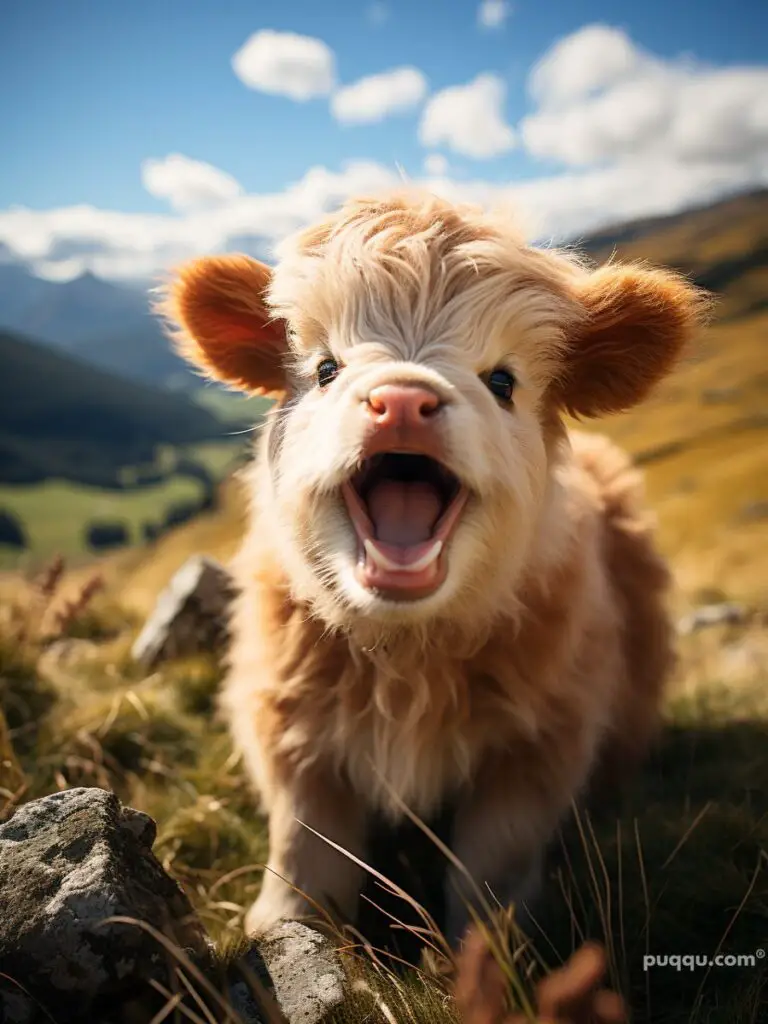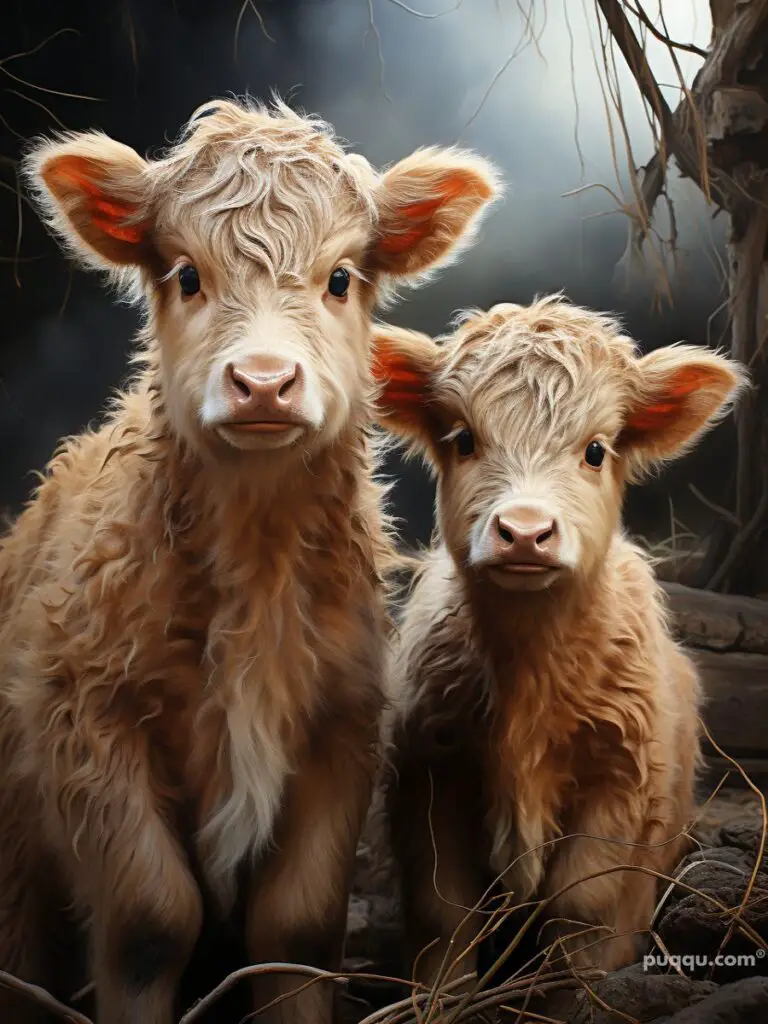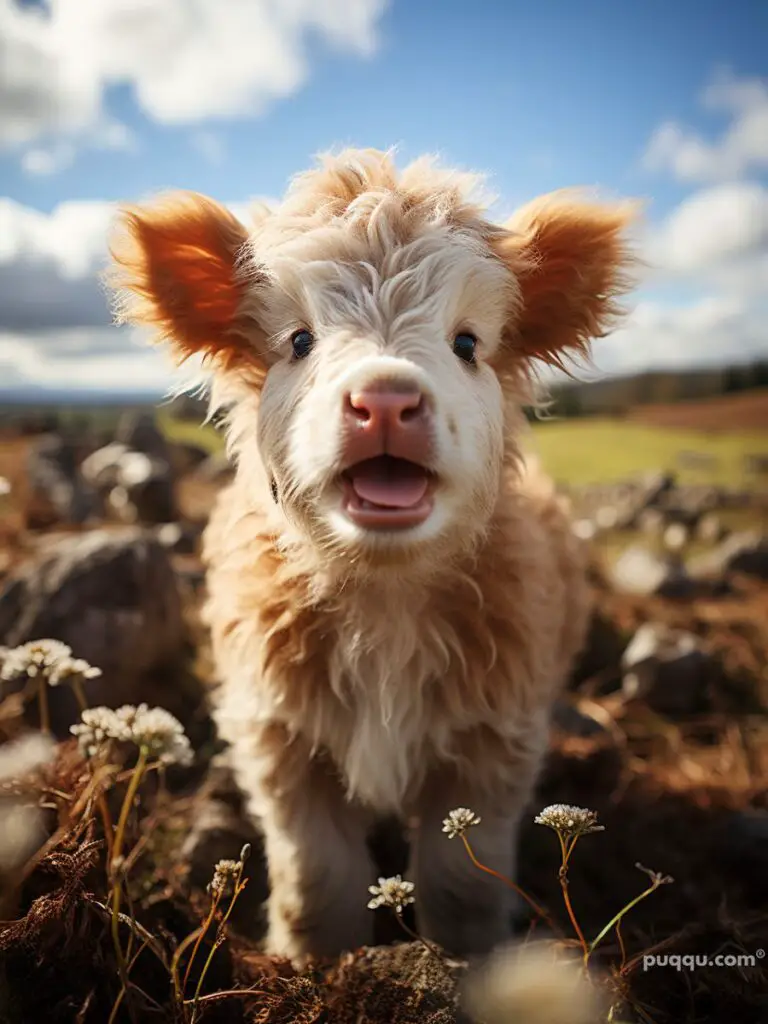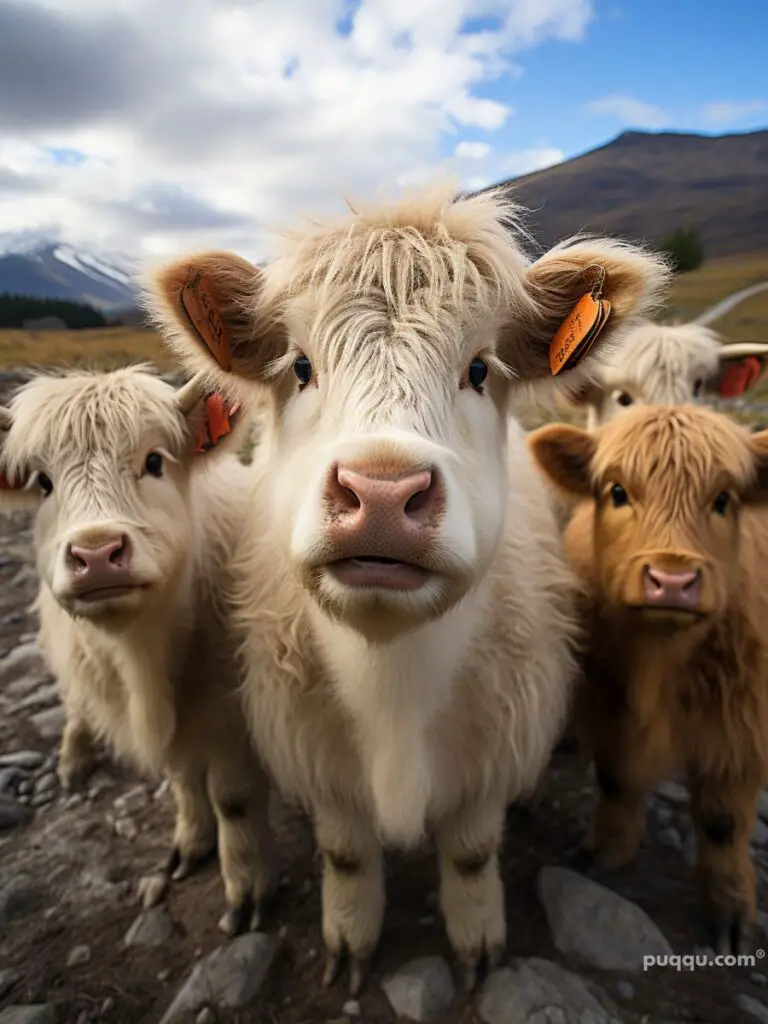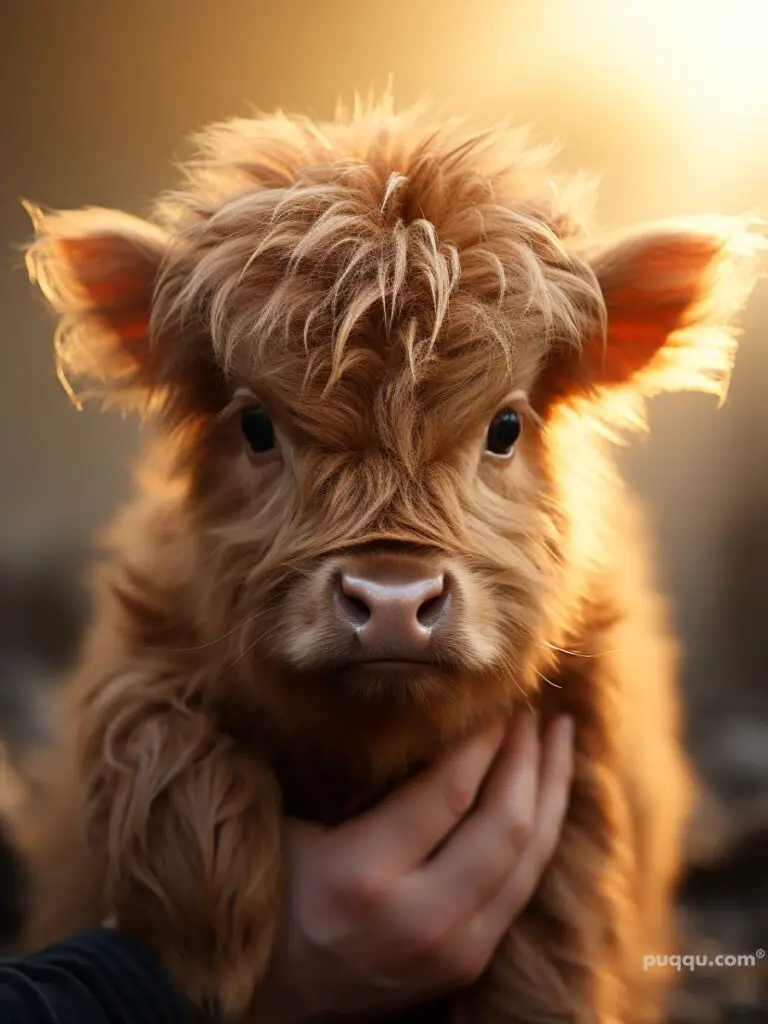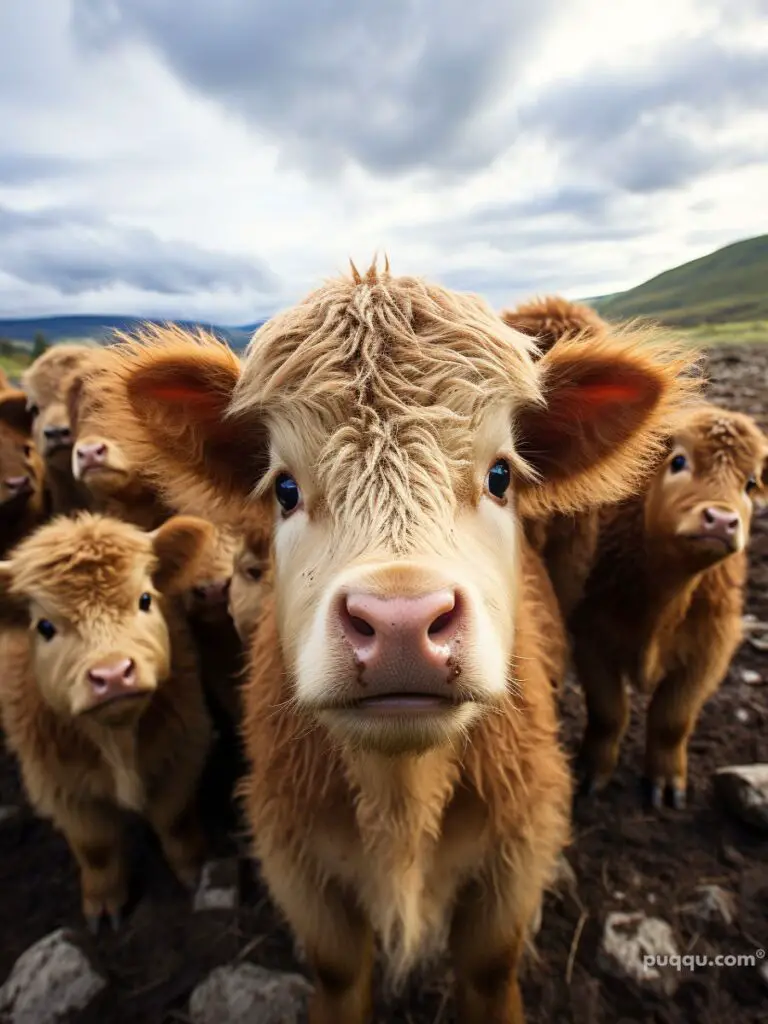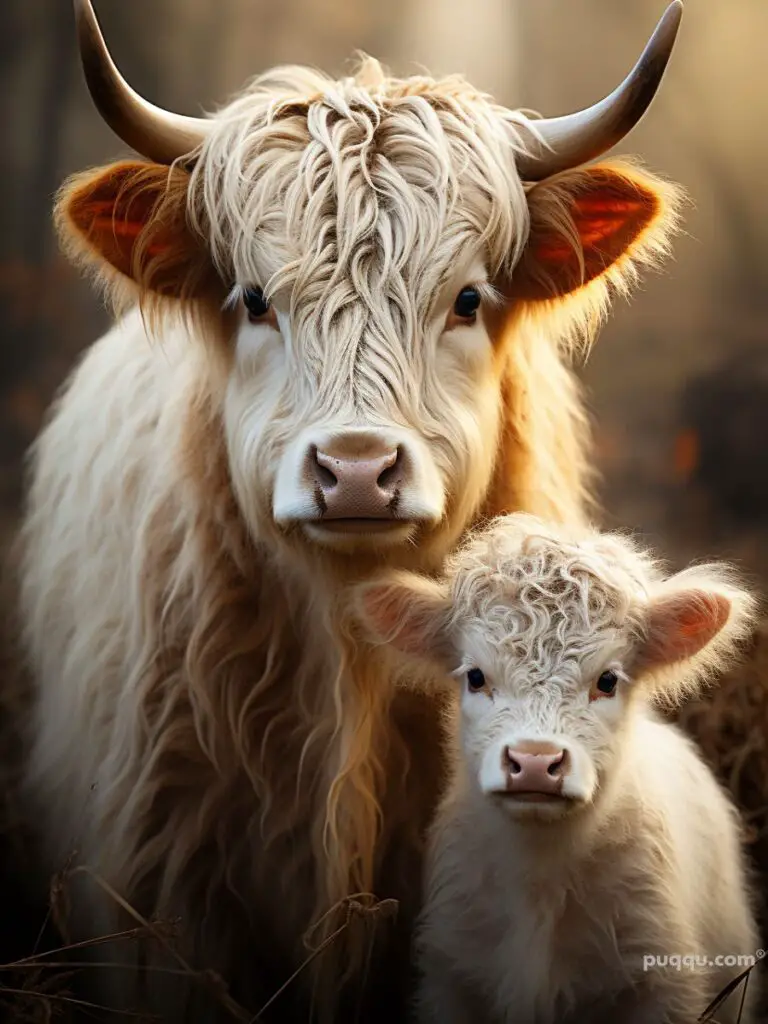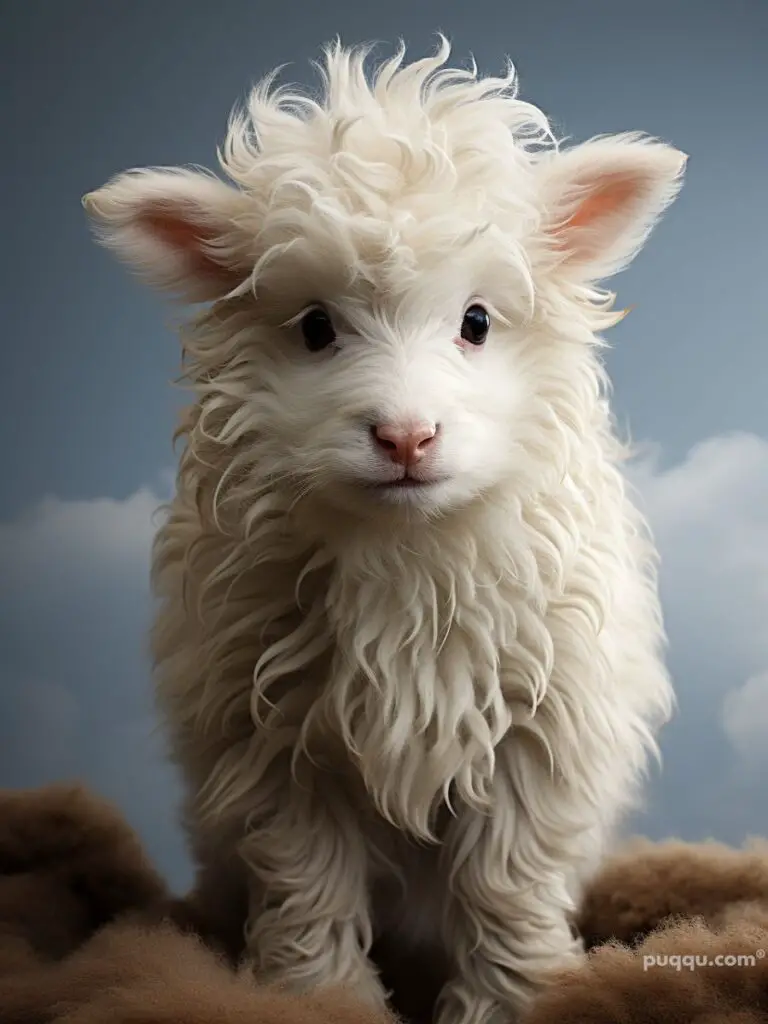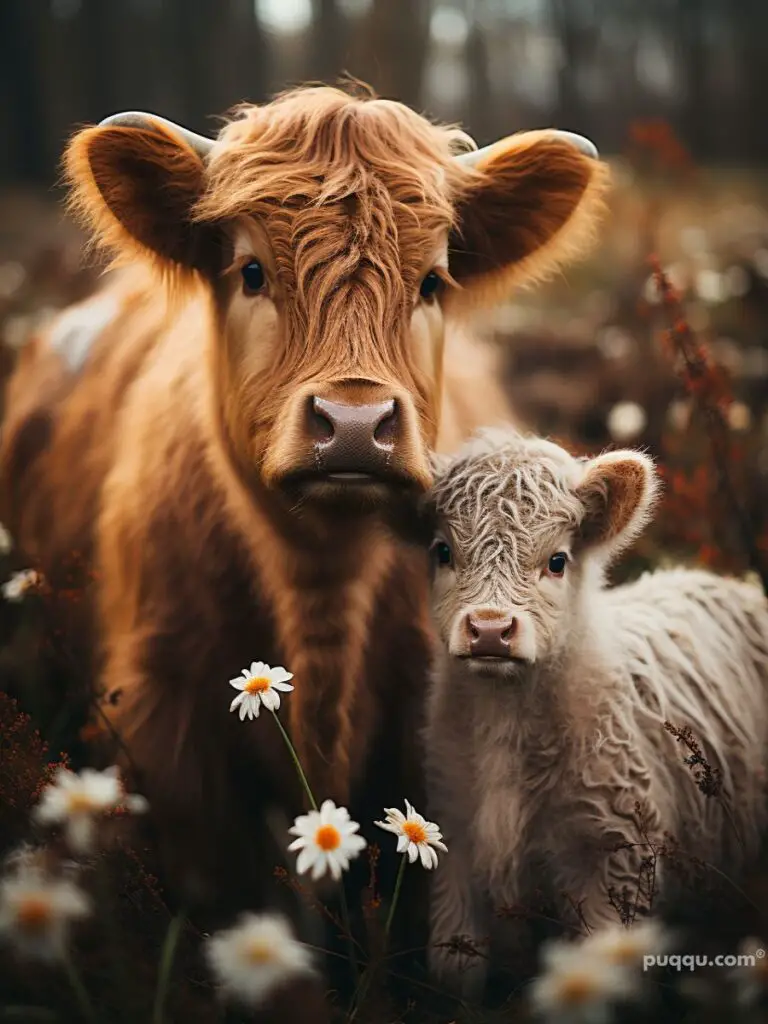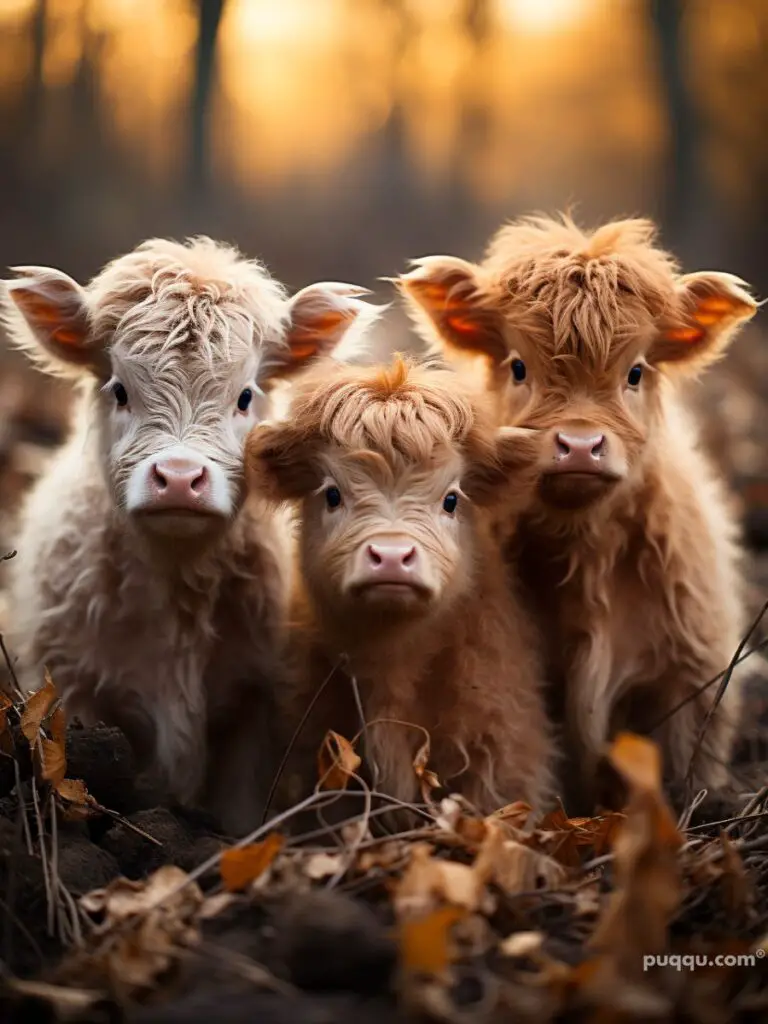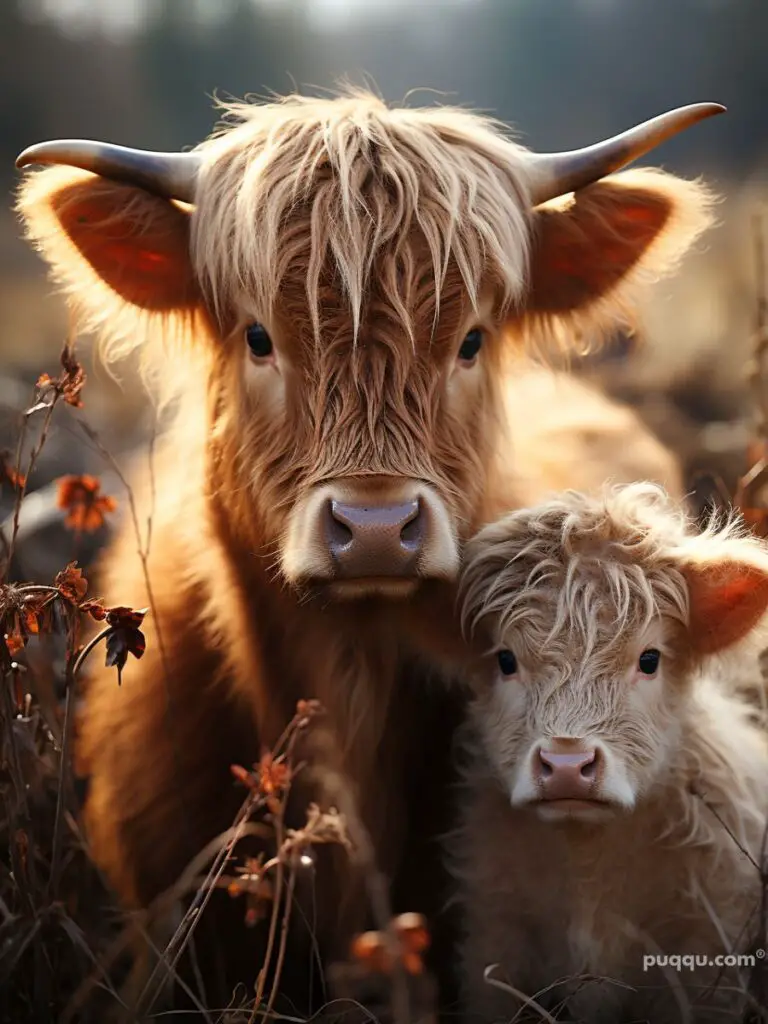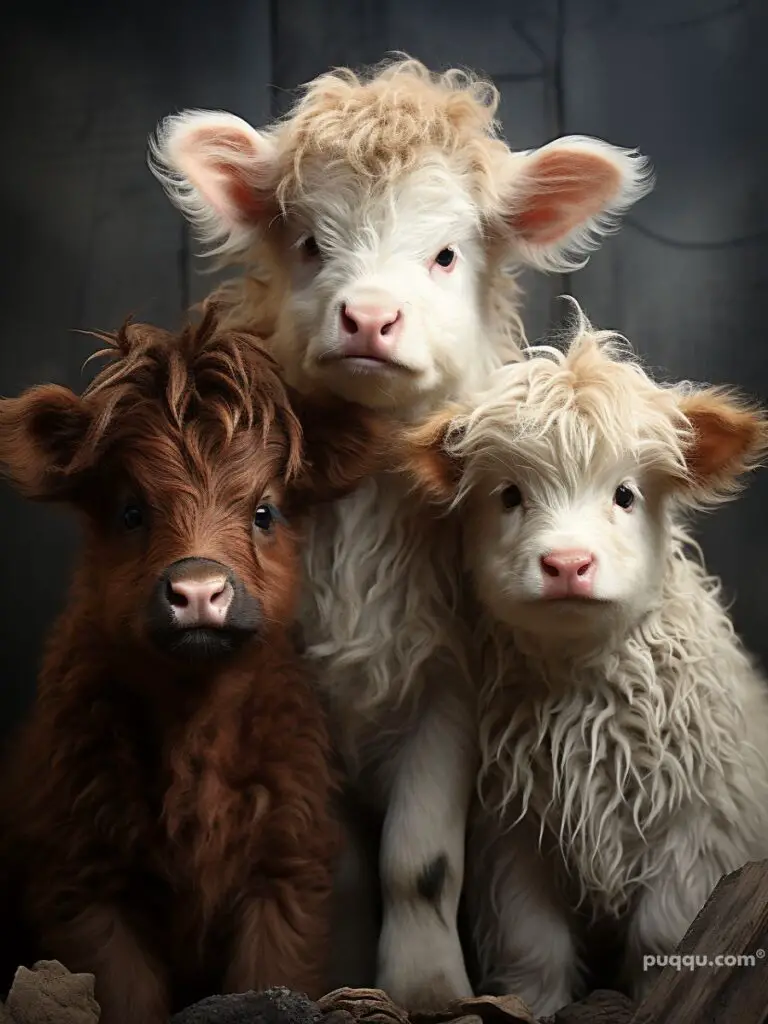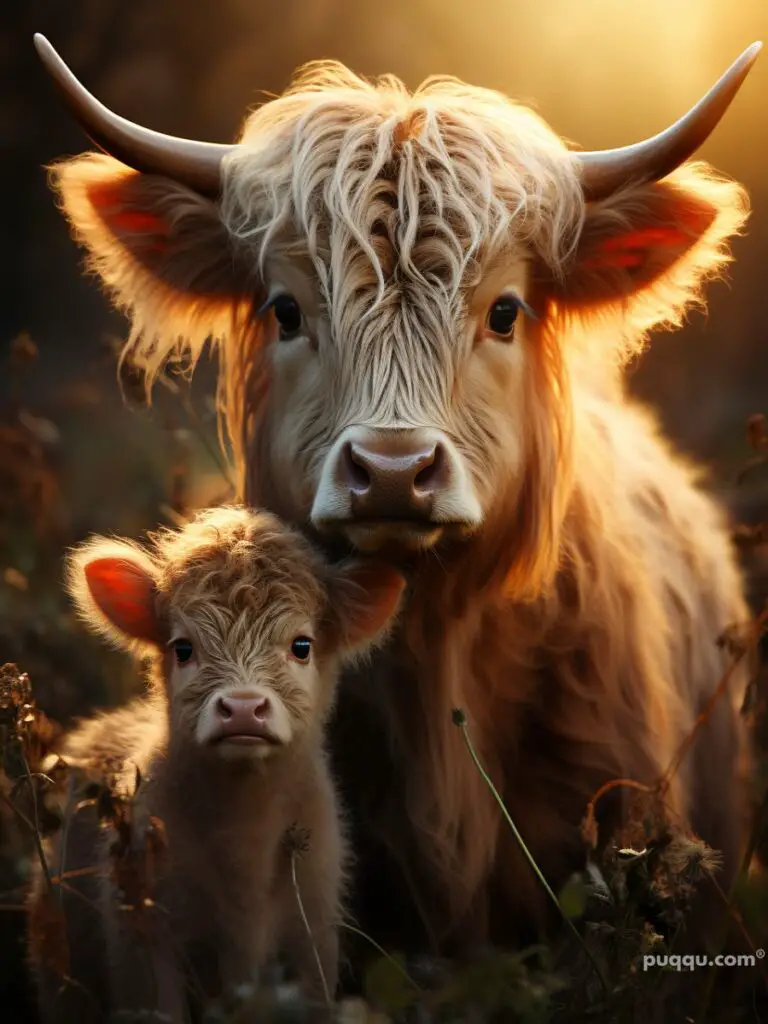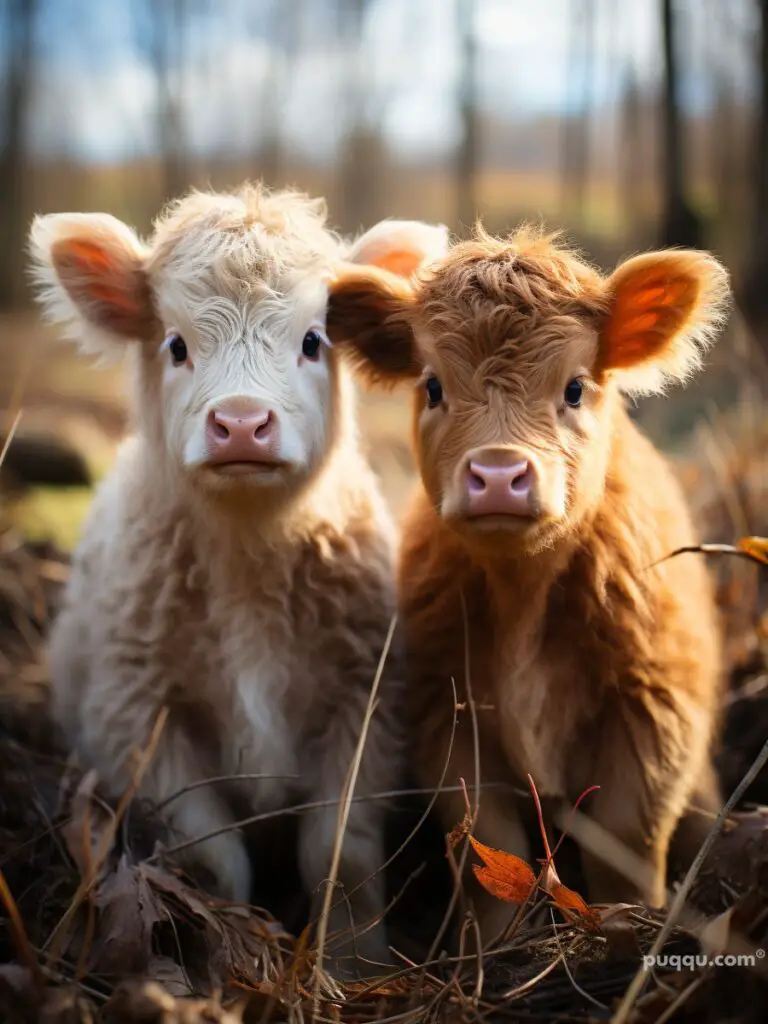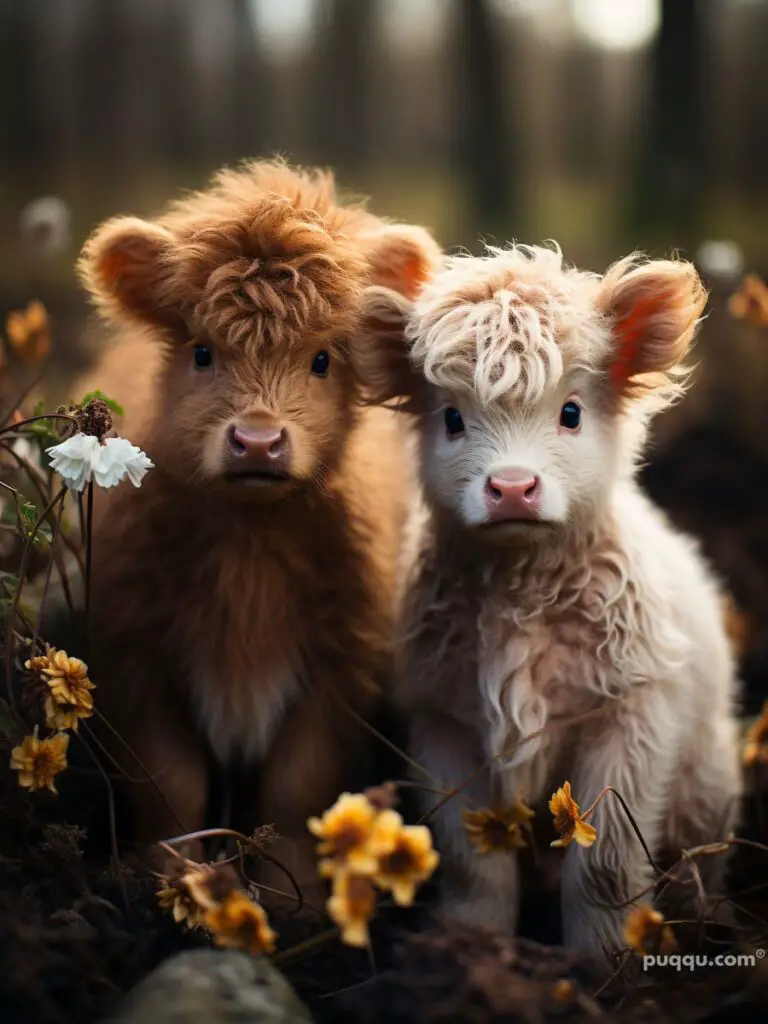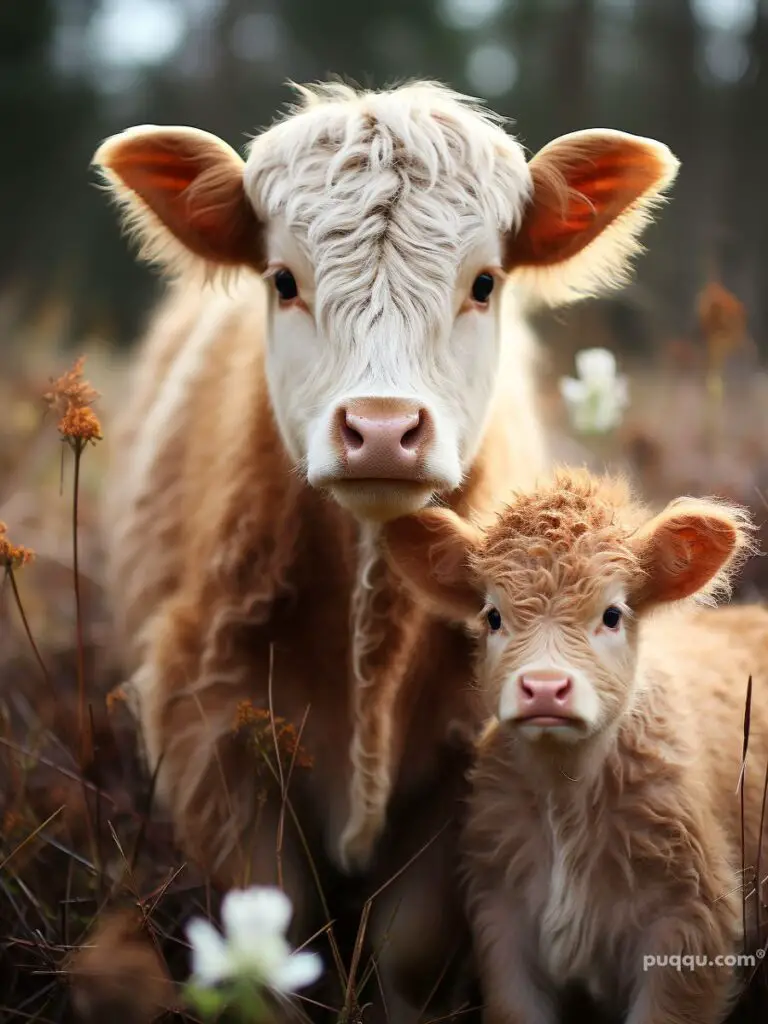Baby Highlander cows, also known as Highland calves, are some of the most charming and adorable creatures you’ll ever encounter. Their fluffy coats, inquisitive eyes, and playful nature make them irresistible. Let’s delve into the world of these captivating animals and explore what makes them so special.
The Unique Appeal of Highland Calves
1. Fluffy Coats
Description: Highland calves are born with a thick, woolly coat that helps them withstand harsh weather conditions. Their fluffy fur adds to their overall cuteness and makes them look like living teddy bears.
Characteristics:
- Insulation: The dense coat provides excellent insulation, keeping the calves warm in cold climates.
- Softness: The fur is incredibly soft to the touch, making them a favorite among animal lovers.
- Variety of Colors: Highland calves come in various colors, including red, black, yellow, white, and brindle.
2. Distinctive Horns
Description: While they are born without horns, Highland calves start developing their distinctive curved horns as they grow. These horns add to their unique and majestic appearance.
Characteristics:
- Growth: Horns begin to appear a few months after birth and continue to grow throughout their lives.
- Curvature: The horns of Highland cattle typically curve outward and upward, creating a striking silhouette.
- Safety: The horns are also a defense mechanism against predators and an important tool for foraging.
3. Gentle Disposition
Description: Despite their formidable appearance, Highland calves are known for their gentle and docile nature. They are friendly and curious, making them a delight to interact with.
Characteristics:
- Social Animals: Highland calves enjoy the company of their herd and often form strong bonds with other animals.
- Curiosity: Their inquisitive nature makes them eager to explore their surroundings and interact with humans.
- Calm Temperament: They are generally calm and easygoing, which makes them easier to handle compared to other breeds.
Caring for Baby Highlander Cows
4. Proper Nutrition
Description: Providing the right nutrition is crucial for the healthy growth and development of Highland calves. Their diet should be balanced and nutritious to ensure they thrive.
Tips:
- Mother’s Milk: For the first few months, calves rely on their mother’s milk for essential nutrients.
- Forage: As they grow, introduce them to high-quality forage such as hay and grass.
- Supplements: Provide mineral and vitamin supplements if necessary, especially in areas where the soil lacks certain nutrients.
5. Shelter and Protection
Description: Highland calves need adequate shelter and protection from extreme weather conditions and predators. A safe and comfortable environment is essential for their well-being.
Tips:
- Shelter: Provide a sturdy shelter that offers protection from wind, rain, and snow.
- Bedding: Use soft, dry bedding to keep them comfortable and warm.
- Fencing: Ensure that the fencing is secure to protect them from predators and prevent them from wandering off.
6. Health Care
Description: Regular health care is vital to keep Highland calves healthy and prevent diseases. Routine check-ups and vaccinations are essential.
Tips:
- Vaccinations: Follow a vaccination schedule recommended by a veterinarian.
- Deworming: Regular deworming helps prevent internal parasites.
- Observation: Monitor the calves for any signs of illness or distress and seek veterinary care if needed.
Interesting Facts About Highland Calves
7. Historical Significance
Description: Highland cattle have a rich history dating back several centuries in Scotland. They are one of the oldest registered cattle breeds.
Facts:
- Ancient Breed: Highland cattle are believed to have been around since the 6th century.
- Adaptability: They are well-adapted to the rugged terrain and harsh climate of the Scottish Highlands.
- Symbol of Scotland: Highland cattle are considered a symbol of Scotland and are featured in various cultural and historical references.
8. Sustainable Farming
Description: Highland cattle are often used in sustainable farming practices due to their ability to thrive in harsh conditions and their minimal environmental impact. They are an excellent choice for eco-friendly farming.
Facts:
- Low Maintenance: Highland cattle require less intensive farming practices compared to other breeds.
- Land Management: They help manage and improve the land by grazing on rough terrain and promoting biodiversity.
- Quality Meat: Highland cattle produce high-quality, lean meat that is prized for its flavor and nutritional value.
9. Popularity in Media
Description: Highland calves have gained popularity in media and social networks due to their adorable appearance. They often feature in viral videos and photos.
Facts:
- Social Media Stars: Photos and videos of Highland calves often go viral, attracting millions of views and likes.
- Farm Attractions: Many farms that raise Highland cattle have become popular tourist attractions.
- Mascots: Highland calves are sometimes used as mascots for events and organizations due to their charming appearance.
Conclusion
Highland calves are truly enchanting creatures with their fluffy coats, gentle disposition, and unique appearance. They capture the hearts of those who encounter them and are a joy to raise and care for. Whether you are a farmer, an animal lover, or simply someone who appreciates the beauty of nature, Highland calves are sure to leave a lasting impression.
Frequently Asked Questions
What do Highland calves eat?
Highland calves primarily rely on their mother’s milk for the first few months. As they grow, they transition to eating high-quality forage such as hay and grass, and may also require mineral and vitamin supplements.
How do you care for Highland calves in winter?
Highland calves are well-adapted to cold climates, but they still need adequate shelter and protection. Provide a sturdy shelter, soft bedding, and ensure they have access to fresh water and nutritious food.
At what age do Highland calves start developing horns?
Highland calves typically start developing horns a few months after birth. The horns continue to grow throughout their lives, forming the distinctive curved shape characteristic of the breed.
Are Highland calves friendly?
Yes, Highland calves are known for their gentle and docile nature. They are social animals that enjoy the company of their herd and are generally curious and friendly towards humans.
Why are Highland calves popular on social media?
Highland calves are popular on social media due to their adorable appearance, fluffy coats, and playful behavior. Photos and videos of these charming animals often go viral, attracting attention and admiration from people around the world.
